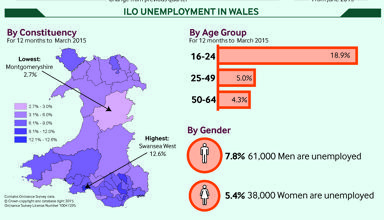On Tuesday, 15 January, Assembly Members will debate the Final Local Government Settlement 2019-20. This article, originally published on 21 December 2018, is being re-posted ahead of the debate.
The Final Local Government Settlement 2019-20 was published by the Welsh Government on 19 December 2018. This outlines funding for each of Wales’ twenty-two local authorities. The settlement will be debated in Plenary on 15 January 2019.
The total settlement is £4.237 billion, which is an increase of £10.3 million (0.2%) when compared to the Final Settlement in 2018-19. The Final Settlement includes additional funding of £23.6 million compared to the provisional settlement. This follows allocations in the 2019-20 Final Budget of £13 million to local government (plus £1.2 million for an improved settlement floor), £7 million to support the increase to the capital limit in charging for residential care, and £2.4 million for discretionary business rate relief.
The largest increase compared to 2018-19 is 0.9% in Cardiff and the largest decrease is -0.3% for five local authorities (Isle of Anglesey, Conwy, Flintshire, Powys and Monmouthshire).
The full breakdown of percentage changes in funding by local authority is outlined in the image below.
This year no authority will experience a decrease more than -0.3%, following the additional allocations made in the Final Budget. The five authorities where the funding decrease is -0.3% have received top-up funding totalling £3.5 million to ensure they do not experience a reduction beyond this level, allocated as below:
- Isle of Anglesey – £269,000
- Conwy – £691,000
- Flintshire – £537,000
- Powys - £1,214,000
- Monmouthshire - £759,000
General Capital Funding for local authorities in 2019-20 is £193 million, including £20 million for public highways refurbishment grant.
The Minister’s letter to local authorities, the Local Government Finance Report 2019-20 and the Local Government Revenue and Capital Settlement 2019-20: All Wales – Tables, can be found on the Welsh Government website
Article by Helen Jones, National Assembly for Wales Research Service






